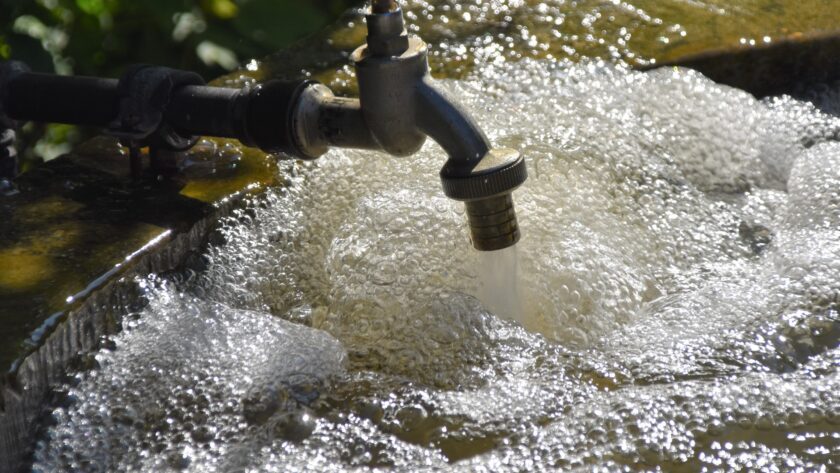Plumbing disasters such as clogged toilets, water leaks, and sewer back-ups can happen anytime. These emergencies can cause costly damage if addressed after some time.
Most of these emergencies are preventable with regular maintenance and inspections. Follow these tips to keep your home safe from plumbing disasters!
Check Your Water Heater
Having to deal with a plumbing rooter service emergency is scary and frustrating. Unfortunately, many plumbing emergencies are unpredictable and unavoidable, such as when things get flushed down the drain (from dentures to dead wildlife), or pipes burst in sub-zero temperatures. However, most plumbing issues are preventable with proper maintenance.
When a problem arises, the first thing you should do is shut off your water supply. Ensure you and your family know where the main shut-off valve is located and the individual water valves for each fixture and appliance. This is one of the most important steps to minimize damage and save money while waiting for a plumber to arrive.
Next, try to locate the source of the issue. Look for wet spots on the floor, walls, or ceilings; a puddle near your water heater; or any other signs of a leak. If you can’t find the source of the leak, use towels, buckets, and rags to soak up any excess water. This will help to reduce damage to carpeting, drywall, and other materials while you wait for the plumber to arrive.
Another way to avoid plumbing emergencies is to have regular maintenance services performed by a professional. Services like drain cleaning, septic tank pumping and cleaning, sewer line inspections, and water heater flushing can all help to prevent clogs and other common plumbing problems.
Check Your Sewer Line
Many homeowners need to remember their sewer lines. This is because they rarely use them and don’t require regular inspections like other parts of your home plumbing system. However, a sewer line leak can cause significant damage to your property and your health.
You often know when a sewer pipe has leaked from the odor alone. A foul smell indicates that the water is contaminated with sewage, which poses a health threat. The leaking water can also cause damp spots in your home, which may lead to mold and mildew growth.
Another sign of a leaky sewer line is if your home’s drains slowly drain. Most gutters will back up at some point, but if they do so simultaneously throughout your home, it’s likely a sign of a blockage in the main sewer line.
If you’ve noticed any of these signs, call a plumber immediately to avoid more severe problems down the line. Try using towels and rags to soak up any excess water while you wait for the plumber to arrive. This will help prevent damage to your carpet and other belongings. You can also turn off your home’s main water supply to reduce the water from your pipes. This will help minimize the damage caused by a sewer line leak.
Check Your Water Pressure
While plumbing emergencies are unavoidable, you can help reduce the risk by performing essential preventative maintenance and recognizing the early warning signs. Some of these include rust collecting around pipes and inlets, water pools in your yard, the smell of sewage (a sign of a broken sewer line), and loud banging or knocking sounds from your plumbing fixtures.
If you notice any of these symptoms, it’s time to call an emergency plumber. The longer a problem goes undetected, the more damage it can cause and the higher your plumbing bills.
It’s also important to check your home’s water pressure regularly. Both low and high water pressure can lead to problems with your pipes. Low pressure can erode pipes over time, leading to leaks and breakages, while high water pressure can cause your pipes to burst.
Finally, if you’re experiencing a water pressure problem and live in an area with city water service, shut off all the water sources in your home and then check your water meter. If the meter reading has gone up, this could indicate an issue with your city water line.
Lastly, check your drains regularly to ensure that they’re not clogged. Gutters are designed to handle a certain amount of debris, but over time, things can build up and cause them to become clogged. Check your kitchen, bathroom, and laundry drains for bits of food, hair, and other debris to ensure they function correctly.
Check Your Drains
A plumbing emergency in the winter can be devastating to your home and family. It can also be costly. However, it doesn’t have to be this way. The best way to prevent plumbing emergencies is through proactive maintenance.
Every week, take the time to test every faucet, showerhead, fixture, and toilet in your home for water pressure, strange noises, or discoloration of the water. These are warning signs that something is going wrong and should be addressed immediately.
Also, check the drains in your home regularly for clogs. A clogged drain is an easy fix for a plumber, but it could be a sign that a bigger problem is occurring. Avoid putting anything down your drain. They’re not designed for tangled hair, food scraps, soap scum, and even ice can build up over time and cause a clogged pipe.
Another easy way to watch your drains is having a professional drain cleaning service visit your home regularly. Doing this can eliminate clogs before they become an emergency plumbing problem. As the old saying goes, an ounce of prevention is worth a pound of cure! Ask your plumber about their maintenance plans to help protect your pipes. This can also save you money in the long run by preventing a costly pipe repair.




